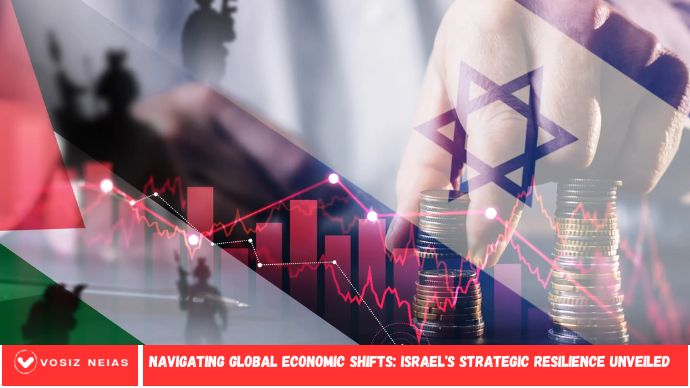Navigating Global Economic Shifts: Israel’s Strategic Resilience Unveiled As global markets fluctuate under the weight of inflation, conflict, and supply chain disruptions, Israel’s economic resilience has become a compelling case study. With strategic innovation, robust fiscal planning, and adaptive policies, Israel continues to navigate global uncertainty while positioning itself as a key player in the evolving economic landscape. This article explores how Israel maintains stability, what challenges lie ahead, and what other nations can learn from its strategic approach.
Introduction: Can Economic Stability Survive Global Volatility?
From geopolitical conflicts to inflationary pressure, the global economy is undergoing significant disruption. Yet amid this uncertainty, Israel stands out for its adaptive economic strategies and resilience under pressure. Despite facing regional instability and internal political shifts, the country continues to deliver growth through technology, innovation, and forward-thinking policy.
Strong Fundamentals in a Shifting Global Economy
1. Resilient GDP Growth
Despite regional conflict and global headwinds, Israel’s GDP is projected to grow by 2.3% in 2025, supported by robust consumer spending and a strong tech sector.
2. Low Public Debt Relative to Peers
Israel’s debt-to-GDP ratio stands at approximately 61.7%, lower than the OECD average. This gives the government more flexibility to respond to future crises and invest in infrastructure.
Technology and Innovation Drive Recovery
High-Tech as Economic Anchor
The Israeli tech industry contributes over 18% of the country’s GDP and has remained resilient even amid global slowdowns. Sectors like cybersecurity, semiconductors, and AI are attracting record foreign investment.
Startup Ecosystem Remains Vibrant
With over 6,000 active startups, Israel ranks third globally in startups per capita. Venture capital activity, though slightly reduced in 2024, remains high compared to other regions.
Monetary and Fiscal Policy Adaptability
The Bank of Israel’s proactive interest rate adjustments have helped manage inflation, which cooled to 3.4% by Q1 2025 after peaking at over 5% in 2023. The government also implemented targeted stimulus packages to support households and SMEs during periods of economic strain.
Strategic Sectors Fuel Long-Term Stability
- Defense & Aerospace: Continued demand for Israeli defense tech bolsters exports.
- Renewable Energy: Investments in solar and water tech support energy independence.
- AgriTech: Innovation in sustainable farming enhances food security and export potential.
Key Challenges on the Horizon
While Israel has proven economically resilient, several challenges remain:
- Geopolitical tensions in Gaza and the northern borders can disrupt supply chains and tourism.
- Housing affordability remains a growing domestic issue, impacting social stability.
- Global tech slowdowns may limit future venture funding and startup scaling.
Conclusion
Israel’s economic journey offers a compelling lesson in resilience through diversification, innovation, and proactive governance. While challenges persist, its ability to adapt and thrive under pressure provides a model for other small, open economies facing global instability.
FAQs
1. What is driving Israel’s economic resilience?
Key factors include a strong tech sector, low public debt, and adaptive fiscal and monetary policies.
2. How much does technology contribute to Israel’s economy?
The tech industry contributes over 18% to Israel’s GDP and is a primary driver of exports and employment.
3. Is Israel’s economy growing in 2025?
Yes, GDP is expected to grow by approximately 2.3%, driven by consumer demand and tech sector expansion.
4. What sectors are key to Israel’s long-term growth?
Technology, defense, renewables, and agriculture technology are core growth areas.
5. How is Israel handling inflation?
Through proactive interest rate policy by the Bank of Israel, inflation has been reduced to 3.4% in early 2025.
6. What challenges could impact Israel’s future stability?
Geopolitical tensions, housing costs, and a cooling global tech market pose significant risks.


